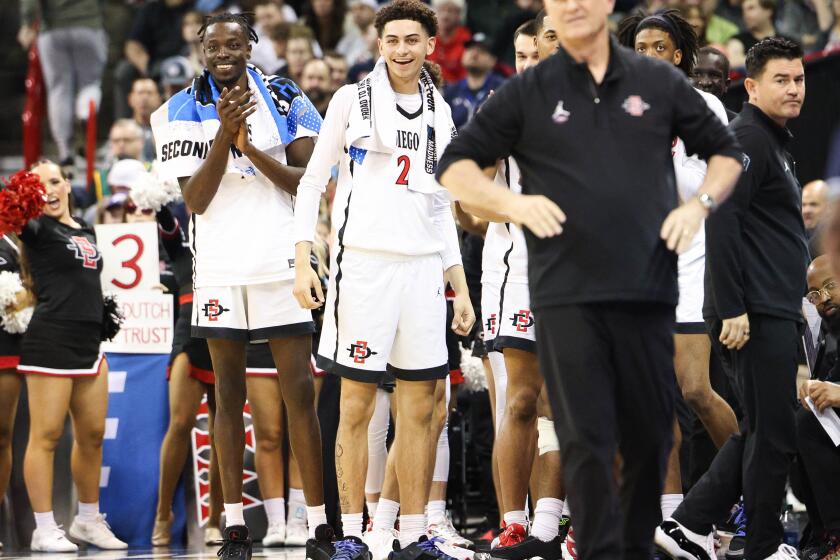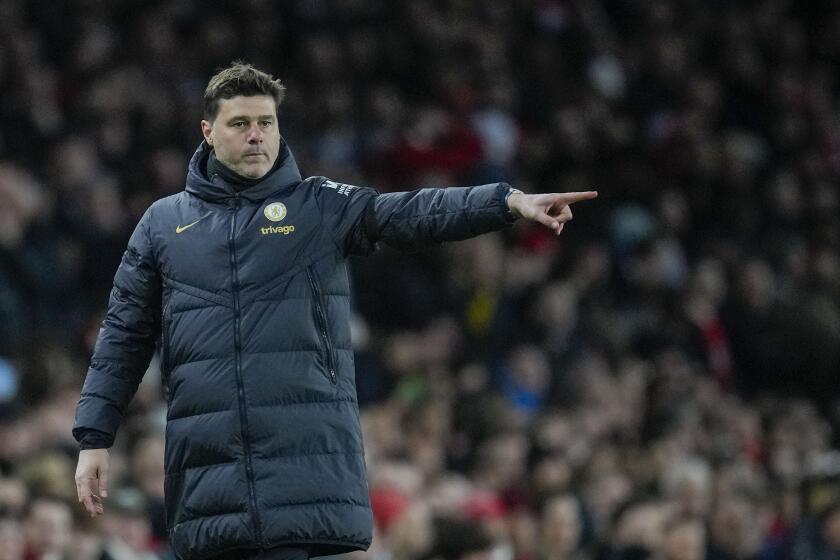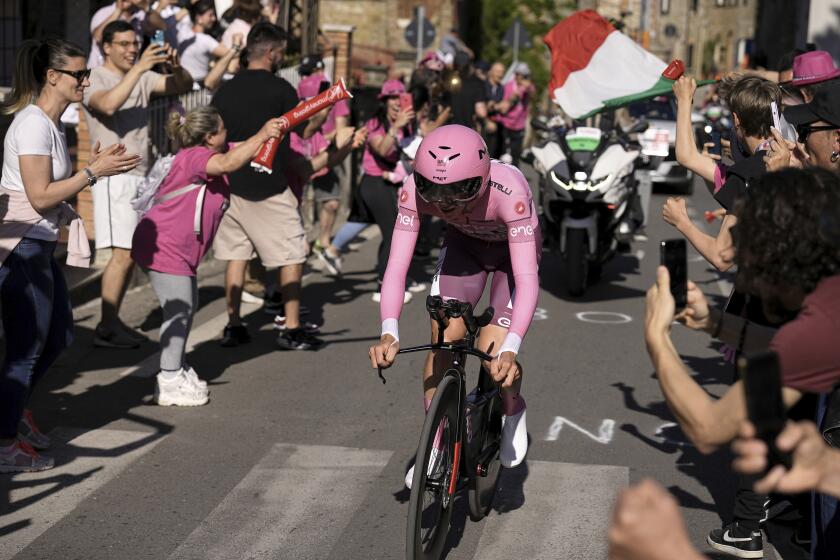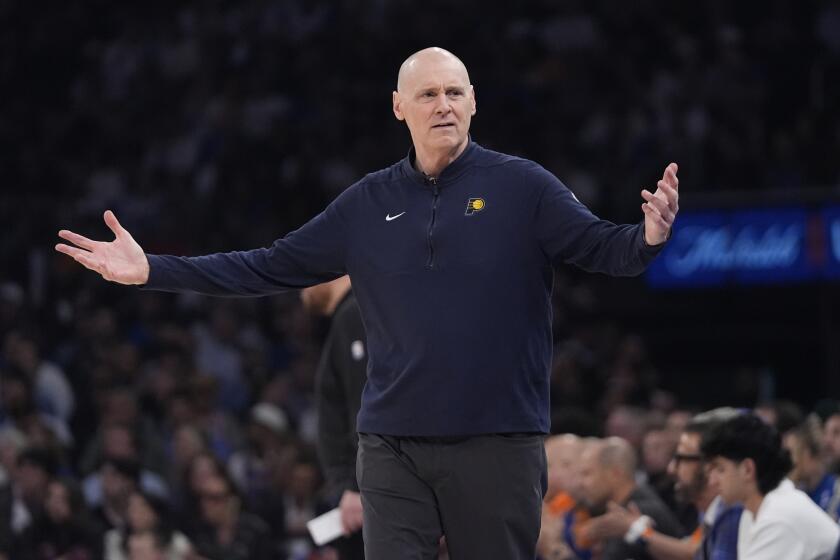The tinkerer: Mexico coach Juan Carlos Osorio fiddles with a national institution
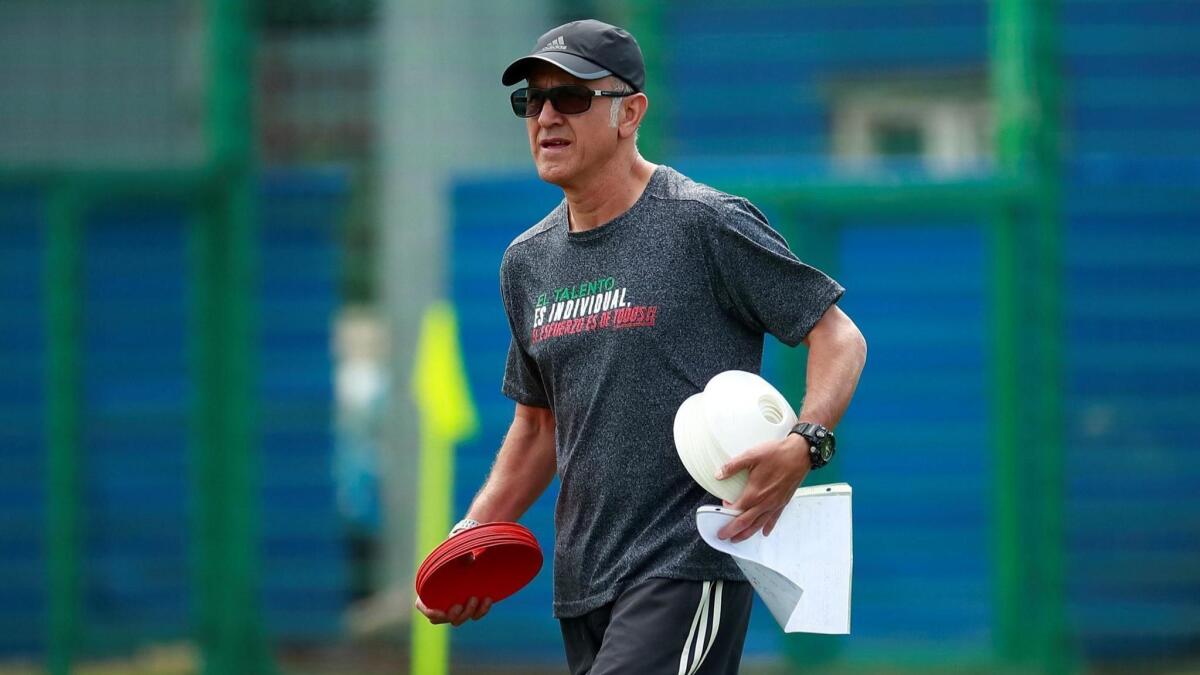
When Juan Carlos Osorio goes to the gym, he doesn’t get on the treadmill, set the speed, run for 45 minutes and get off.
He checks his heart rate, adjusts the speed, changes the elevation, then checks it again and starts pressing buttons to make the workout easier or more strenuous. And again and again and again. Faster. Slower. Up. Down. Twenty, 30, 40 times in a 45-minute workout.
It drives Mexicans crazy.
Not that the coach of the national soccer team is trying to stay fit, but how he is.
Not that he tinkers with the treadmill in the privacy of the gym, but that he tinkers with the national team. Their national team.
Osorio is less the modern coaching archetype of the slick corporate executive than the mad scientist, watching two games a day from his massive video library, traversing the world to pick the brains of the game’s biggest names, poring over advanced analytics, pulling pens from his sock and taking notes in multicolored ink, scribbling formations on cocktail napkins, creating an online platform of mental and physical exercises personalized for each player, meticulously placing practice cones to the inch, taking off his glasses and gazing out at the grass chessboard before him with a quizzical frown.
Uh, oh, he’s doing it again. Changing formations. Changing lineups. Changing positions.
Changing everything.
“I have prepared my entire life for a World Cup,” Osorio told ESPN. “This is it.”
Chilling, harrowing, terrifying words to the Mexican soccer fan.
El Tri opens the 2018 World Cup against defending champion Germany on Sunday at Moscow’s Luzhniki Stadium (8 a.m., Fox Sports 1), and no one can tell you who will start or in what formation.
You think you know, because Osorio has fielded essentially the same 11 in the same 4-2-3-1 formation during the portion of practice sessions in Russia open to the media. But he’s done this before, coyly letting the media see one thing and then doing another.
There’s also this: In 48 games as Mexico’s national coach, he’s fielded 48 different lineups.
It is these kinds of mind games that make the 57-year-old Colombian so vulnerable, that have 85,000 in Estadio Azteca chanting “Fuera” (Out!) in the closing minutes of a 1-0 victory against Scotland on June 3. He has the highest winning percentage (.646) in 80 years of any Mexican national coach around longer than 15 games, and he might have drawn the highest percentage of ire in a country that has had 16 national coaches in the last 18 years.
Asked by BBC Mundo if he can possibly win the trust of fans, Osorio conceded: “I think not. I think the average Mexican in the streets hears too much information. Some of that information is not true, and I hope we can change that during the World Cup.”
The expectation is that El Tri will reach the elusive “quinto partido,” the fifth game, the quarterfinals. They have advanced to the second round in six straight World Cups, and lost in the second round in six straight World Cups.
Osorio has – or at least had – arguably Mexico’s best team, with more players established with European clubs than ever before, with a healthy mix of veterans and youngsters, with the confidence of dominating qualification in the CONCACAF region.
Then defender Nestor Araujo got hurt and was left off the roster. Now Diego Reyes, his best defensive midfielder who could also play in the back, couldn’t recover from a pulled hamstring and is out as well.
There also are reports (and pictures) of a wild party among players after the Scotland send-off game that stretched into the wee hours of the morning and may or may not have involved prostitutes. Midfielder Hector Herrera was excused from practice a few days later to tend to an undisclosed “personal matter” that some say was related to the shindig.
Osorio and his future with Mexico remain an ever-present distraction as well. He declined a contract extension a few months back, claiming he has been approached about other jobs and “for different reasons I cannot just ignore that.” He’ll wait until after the World Cup to weigh them.
Some have speculated he already reached a deal in principle with his native Colombia. Others list him as a candidate for the vacant U.S. job, which Osorio calls “very appealing.” Others say his dream job is in England’s Premier League after renting a second-story room across the street from Liverpool’s training complex in the 1990s and furtively watching practices from the window (while, of course, taking copious notes in multicolored ink).
In the meantime, he moves green, white and red pieces around a grass chessboard. He fiddles. He tinkers.
One of his tenets is squad rotation, switching lineups and formations based on an opponent’s relative strengths and weaknesses. There is a physical component, keeping fresh legs. There is also a psychological component, the theory being that the entire 23-man roster is more engaged and committed if half of it isn’t always sitting on the bench.
And while all that sounds great, with a 31-9-8 record as proof, his detractors point out that it hasn’t worked when it matters most, in international tournaments. Osorio has been in three with Mexico, and they have all followed a similar pattern: Play their best game in the opener, then get progressively worse and crash out with a bad loss.
Osorio’s Mexico entered the Copa America Centenario in 2016 on a 16-game unbeaten streak, beat Uruguay 3-1 in the opener … and lost 7-0 (yes, 7-0) to Chile in the semifinals.
In the Confederations Cup last June, El Tri dramatically came from behind to tie reigning European champion Portugal 2-2 in the opener … and were trounced 4-1 by Germany’s B team in the semifinals after several curious lineup decisions.
In the CONCACAF Gold Cup later that summer, El Tri beat El Salvador 3-1 in the opener at SDCCU Stadium … and scored three goals in the next four games before losing 1-0 to Jamaica in the semis before a pro-Mexico crowd at the Rose Bowl.
“A lot of people said that the past few years have been good,” former Mexico coach Manuel Lapuente told the Associated Press, “but I’m not so sure about that. We were a failure in the Copa America Centenario. We failed at the Gold Cup and the Confederations Cup. We did well in the qualifiers, but guess what? We are not going to play against that kind of opponent in Russia.”
Osorio stays on the treadmill, undaunted. The computer programs. The pens in the sock. The perfectly-placed practice cones. The statistics. The video library. The scribbles on cocktail napkins.
He has prepared his entire life for a World Cup. This is it.
Aztecs


Video: Aztecs make history with upset over No. 6 Nevada

Aztecs prepare for Fresno State

Aztecs beat New Mexico, 97-77

Dutcher, Aztecs prepare for Air Force

Aztecs beat Wyoming, 84-54

Aztecs prepare for conference game against Boise

Aztecs beat Texas Southern, 103-64

Rocky Long: "This team has overachieved"

SDSU West bests SoccerCity as voters embrace a new vision for Mission Valley stadium site

Aztecs win season opener, 76-60
Go deeper inside the Padres
Get our free Padres Daily newsletter, free to your inbox every day of the season.
You may occasionally receive promotional content from the San Diego Union-Tribune.

